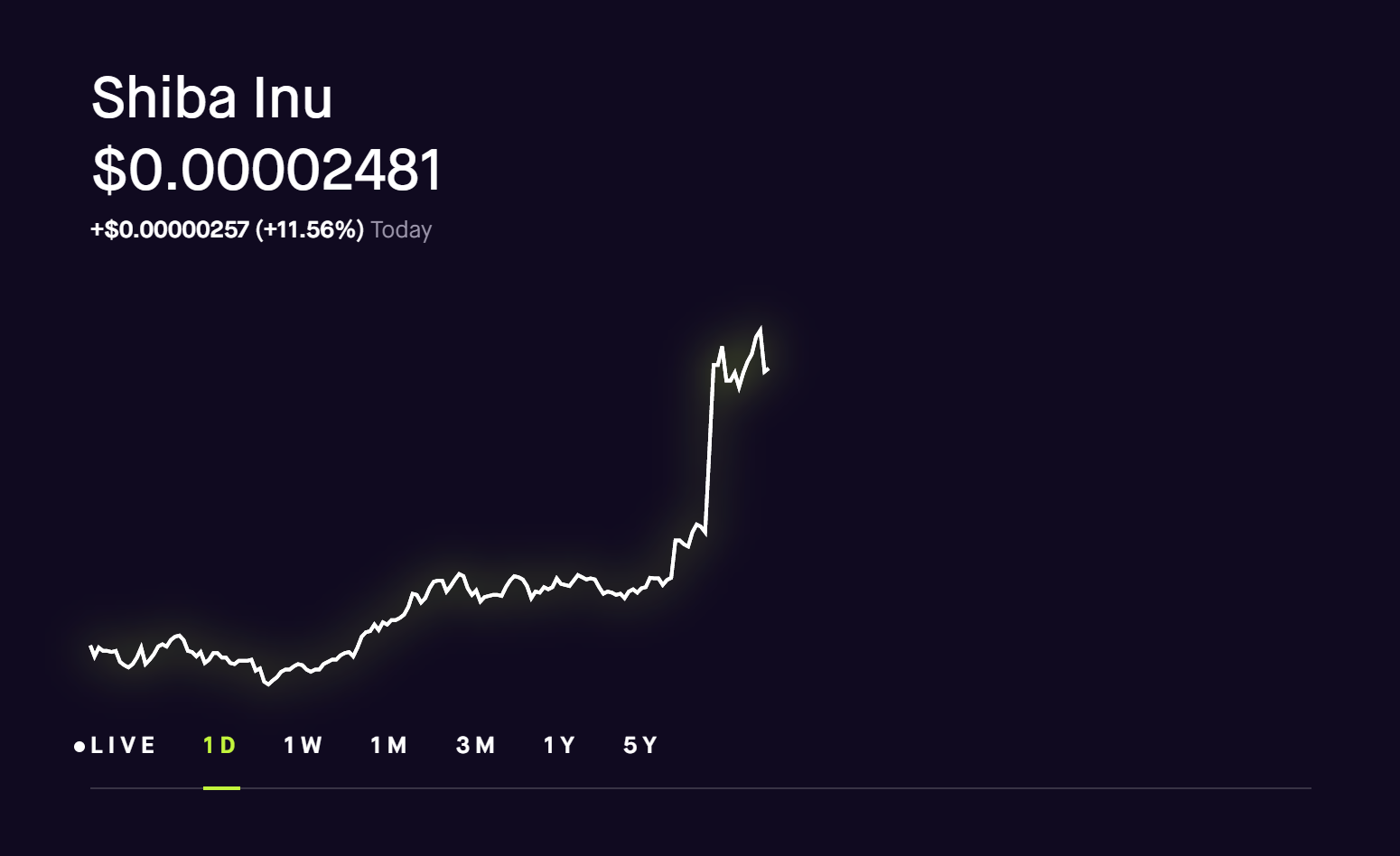American commission-free investing app Robinhood has listed Shiba Inu (SHIB) for trading on its platform. Based on information on Robinhood’s SHIB crypto page, investors can now buy and sell Shiba Inu on Robinhood.
Rumors of a Shiba Inu listing on Robinhood have been in the news since earlier this year. The token even saw a 16% jump in January after rumors emerged that the platform would list the memecoin sometime in February.
However, the rumors were nullified by comments by Robinhood’s Chief Financial Officer Jason Warnick, who confirmed that the platform at the time was still undecided about listing SHIB.
At the time of writing, however, SHIB appears to be available on Robinhood, resulting in an 11% jump in the token’s price. SHIB is currently the 15th largest crypto asset by market capitalization, with the current value hovering below $15 billion.

Solana (SOL), Polygon (MATIC), and Compound (COMP) Listed on Robinhood
Shiba Inu is not the only cryptocurrency listing on Coinbase today. According to its website, users can now also buy and sell Solana (SOL), the native asset of the Solana network, Polygon (MATIC), the native asset of the Polygon network, and Compound (COMP), the governance token for DeFi protocol, Compound.
The listing of new crypto assets on Robinhood continues the platform’s ongoing switch to offer comprehensive crypto trading options to users. Until now, Robinhood only allowed trading of major assets like Bitcoin and Ethereum, albeit making a surprise listing for Dogecoin (DOGE) near the peak of last year’s crypto frenzy.
Last year, Robinhood reported having over 22.7 million verified users despite only being available to U.S. customers, with a significant portion of new users joining the platform to trade cryptocurrencies. Meanwhile, Robinhood has continued to enhance its crypto offering by enabling native deposits and withdrawals for crypto assets, as opposed to only allowing investors to get exposure to price without owning the underlying assets.










